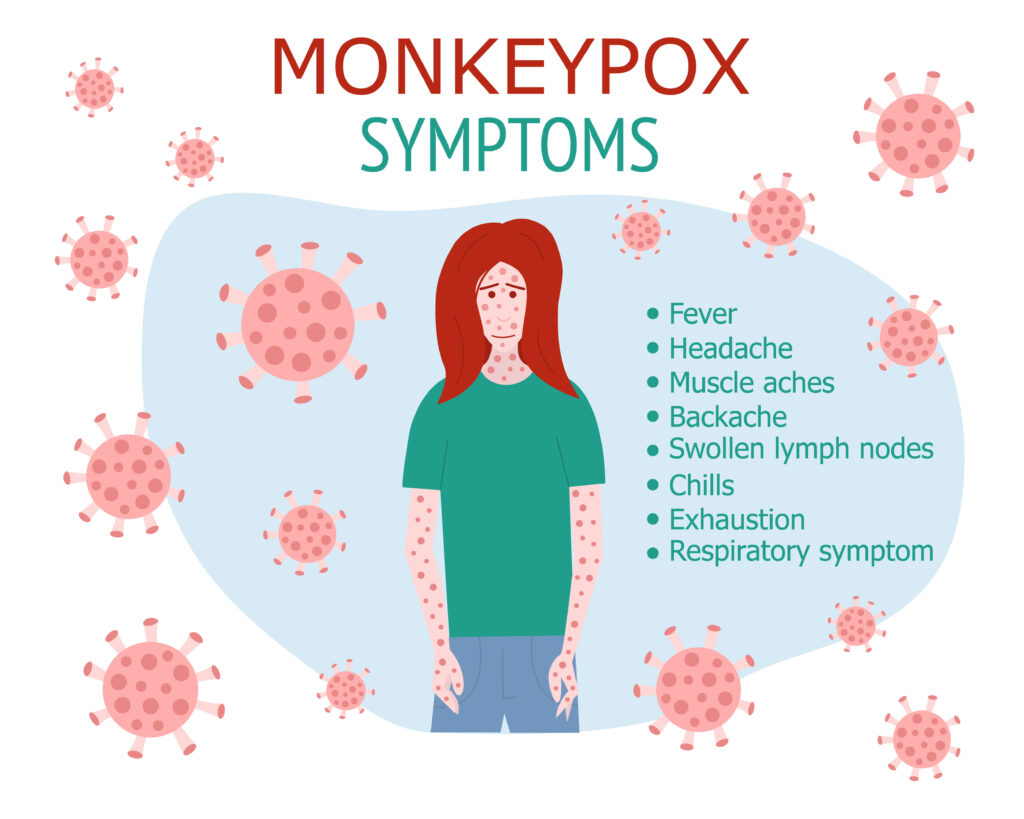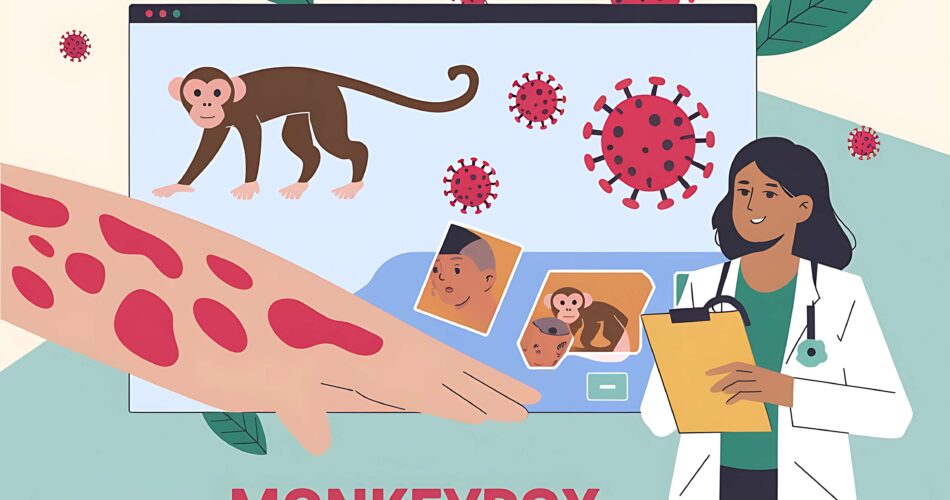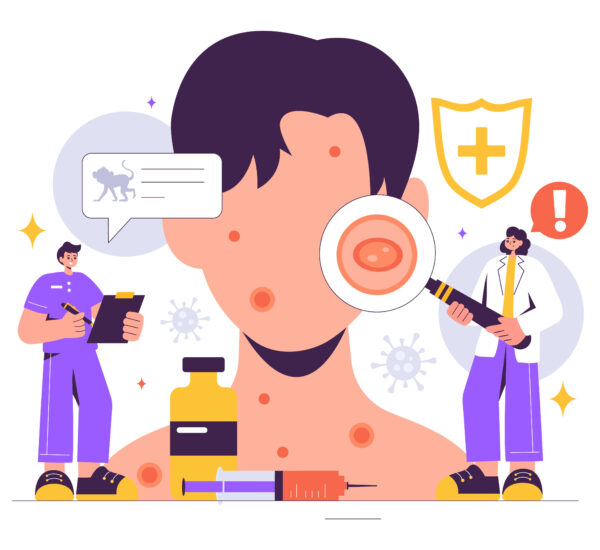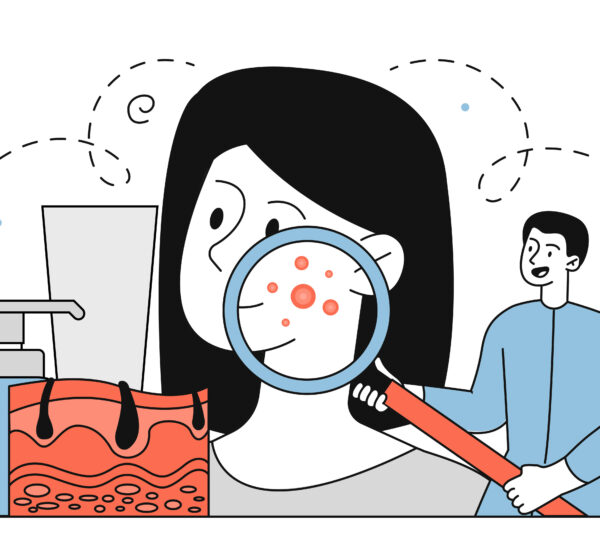An infectious disease recently emerged as a health concern due to its global outbreak affecting various countries, including the Philippines. Monkeypox virus is an endemic health condition in African countries, specifically Central and West Africa. While the recorded cases in those countries can result in fatalities, luckily, our cases were the less severe type of Mpox. Despite that, some Mpox severe symptoms can still occur, requiring immediate attention from a healthcare provider.
It is essential to recognize the red flags that indicate the infection is becoming severe. This guide will help Filipinos understand Mpox severe symptoms and when to seek medical help. By knowing these warning signs, you can protect your health and prevent complications.
Common Monkeypox Symptoms

Early stages of Mpox may involve the following mild symptoms:
- fever
- chills
- swollen lymph nodes
- muscle aches
- sore throat
- low energy
- Mpox rash
Recognizing Severe Mpox Symptoms

While most cases of the Mpox virus result in mild discomfort and resolve within a few weeks, severe symptoms can indicate a more serious progression of the infection. These symptoms can result in complications, which commonly affect the body severely.
To avoid further complications, early detection of these conditions should be your priority. Here are the common Mpox severe symptoms to monitor:
Persistent High Fever
Fever is one of the most common symptoms of this severe disease, and occurs in the early stages of the Mpox infection. However, if your fever persists for more than a few days or continues to rise despite over-the-counter medications, it could be a sign that your body is struggling to fight the virus.
Moreover, persistent high fever may also indicate that a secondary infection has developed. A high fever lasting beyond three days requires immediate medical evaluation.
Severe or Worsening Mpox Rash or Skin Lesions
One of the hallmark symptoms of Mpox disease is the development of Mpox rash or skin lesions. The infected person will notice the lesions start as small red spots and progress into fluid-filled blisters. While they are generally uncomfortable, they should eventually dry up and scab over. However, if you notice any of the following signs, it may be time to seek medical care:
- Lesions that grow larger or more painful.
- Pus or unusual discharge from lesions could indicate a bacterial infection.
- Lesions that fail to heal after two to four weeks.
Severe or infected skin lesions can lead to secondary bacterial infections, complicating recovery. If you suspect an infection, seek treatment right away.
Difficulty Breathing or Chest Pain
Another concerning Mpox severe symptom is difficulty breathing. If you experience shortness of breath, chest pain, or persistent coughing, this could indicate that the virus is affecting your lungs. Mpox can lead to complications such as pneumonia or a lung bacterial infection, which requires prompt medical intervention. So, if this symptom occurs, it should never be ignored and you should seek emergency care immediately.
Confusion or Disorientation
In rare cases, Mpox can affect the central nervous system. If you or a loved one begins experiencing confusion, disorientation, or an inability to concentrate, this may be a sign of a neurological complication related to the virus. Such symptoms require immediate attention from a healthcare provider. Other neurological symptoms to watch for include seizures or severe headaches that do not respond to over-the-counter medications.
Eye Pain or Vision Problems
Mpox lesions can appear on various parts of the body, including the face and eyes. Lesions near or in the eyes can cause complications such as vision impairment or blindness. If you experience pain in your eyes, blurred vision, or sensitivity to light, seek medical help as soon as possible. Eye-related complications from Mpox need to be addressed quickly to prevent long-term damage.
Severe Abdominal Pain
While Mpox primarily affects the skin and respiratory system, some individuals may experience severe abdominal pain. This could indicate that the virus is causing inflammation in other parts of the body, such as the gastrointestinal tract. Furthermore, persistent severe abdominal pain doesn’t improve with over-the-counter treatments. So, you should prompt a visit to a healthcare provider.
Signs of Dehydration
Mpox can cause fever, vomiting, and loss of appetite, all of which may contribute to dehydration. If you or a loved one becomes unable to keep fluids down or shows signs of dehydration, such as dry mouth, dizziness, or decreased urination, seek medical help immediately. Dehydration can quickly become life-threatening if left untreated.
High Risk Groups Who Need Early Medical Attention

Certain groups of people are more vulnerable to complications from Mpox. Even if symptoms appear mild, individuals in these categories should consult with a healthcare provider early in their illness to prevent serious outcomes.
People with Weakened Immune Systems
Those with weakened immune systems, including individuals undergoing chemotherapy, organ transplant recipients, and people living with HIV, may have difficulty fighting off Mpox. Since their immune systems are compromised, they are more likely to experience severe symptoms and complications. If you fall into this group and suspect you have Mpox, it’s crucial to seek medical advice immediately.
Pregnant Women
Pregnant women are at a higher risk of severe Mpox complications, as the virus can affect both the mother and the unborn child. While there is limited research on how Mpox affects pregnancy, early medical intervention is necessary to ensure the health of both mother and baby.
Children and the Elderly
Children and elderly individuals are more likely to experience severe complications from Mpox, including secondary infections, dehydration, and pneumonia. Both children and older adults have immune systems that may not respond to the virus as effectively as healthy adults. It’s important to closely monitor children and the elderly for any changes in their symptoms and seek medical help at the first sign of worsening.
Mpox Treatment Philippines: What to Expect in the Hospital

Diagnosis and Testing
Upon arrival at the hospital or clinic, your healthcare provider will likely perform a physical exam and ask about your symptoms. Mpox is usually diagnosed based on the appearance of the rash, but further tests, such as PCR testing or lesion swabs, may be conducted to confirm the diagnosis.
Mpox Cure for Severe Mpox
Currently, there is no specific antiviral treatment for Mpox, but medical providers can help manage symptoms and prevent complications. Treatment for severe cases may include:
- Antiviral medications: For patients at risk of complications or with severe infections, antiviral drugs like tecovirimat may be prescribed.
- Fluids and electrolytes: If dehydration is present, you may receive intravenous fluids to restore hydration levels.
- Antibiotics: If secondary bacterial infections are present, antibiotics may be prescribed.
- Respiratory support: In cases where the virus affects the lungs, respiratory support such as oxygen therapy or ventilators may be necessary.
Hospitalization for Complications
Severe cases of Mpox may require hospitalization to manage complications, especially if the virus has spread to the lungs, brain, or other vital organs. Hospitalization allows healthcare providers to monitor patients closely, administer treatments, and prevent further deterioration.
Frequently Asked Questions
How is severe Mpox treated in the hospital?
Preventing the spread of Mpox is a priority of various health departments. In that case, ensuring public health through detecting the virus can help. Usually, the experts will initially verify the presence of Mpox through a Polymerase Chain Reaction (PCR) test. Once detected, the doctors will provide medications to help manage the Mpox severe symptoms. In severe cases, treatment may include antiviral medications, intravenous fluids for dehydration, antibiotics for secondary infections, and respiratory support if necessary.
What can I do to prevent severe Mpox?
Prevention of severe Mpox always begins with avoiding possible exposure to the viral infection. This includes being aware of the common forms of transmission like sexual contact, direct contact like skin-to-skin contact, and inhalation of infectious respiratory particles.
Where to go for a consultation for severe Mpox?
Most health centers in the barangay and other local health centers assist patients with Mpox. Although, you can also visit the public and private hospitals near you for a thorough assessment of your condition. Here at NowServing, we can help you schedule a session with the doctor you need, either a physical or online consultation. Download the NowServing app now to begin!
Final Takeaway
Understanding the crucial signs to determine when to seek professional help is a must when Mpox severe symptoms occur. Commonly, patients with such symptoms can experience complications that are deemed detrimental to one’s health. In that case, if the mentioned symptoms above align with your current situation, it’s best to meet with a doctor to fully assess your health.
Book an online consultation or schedule a physical session with an infectious disease doctor today!



